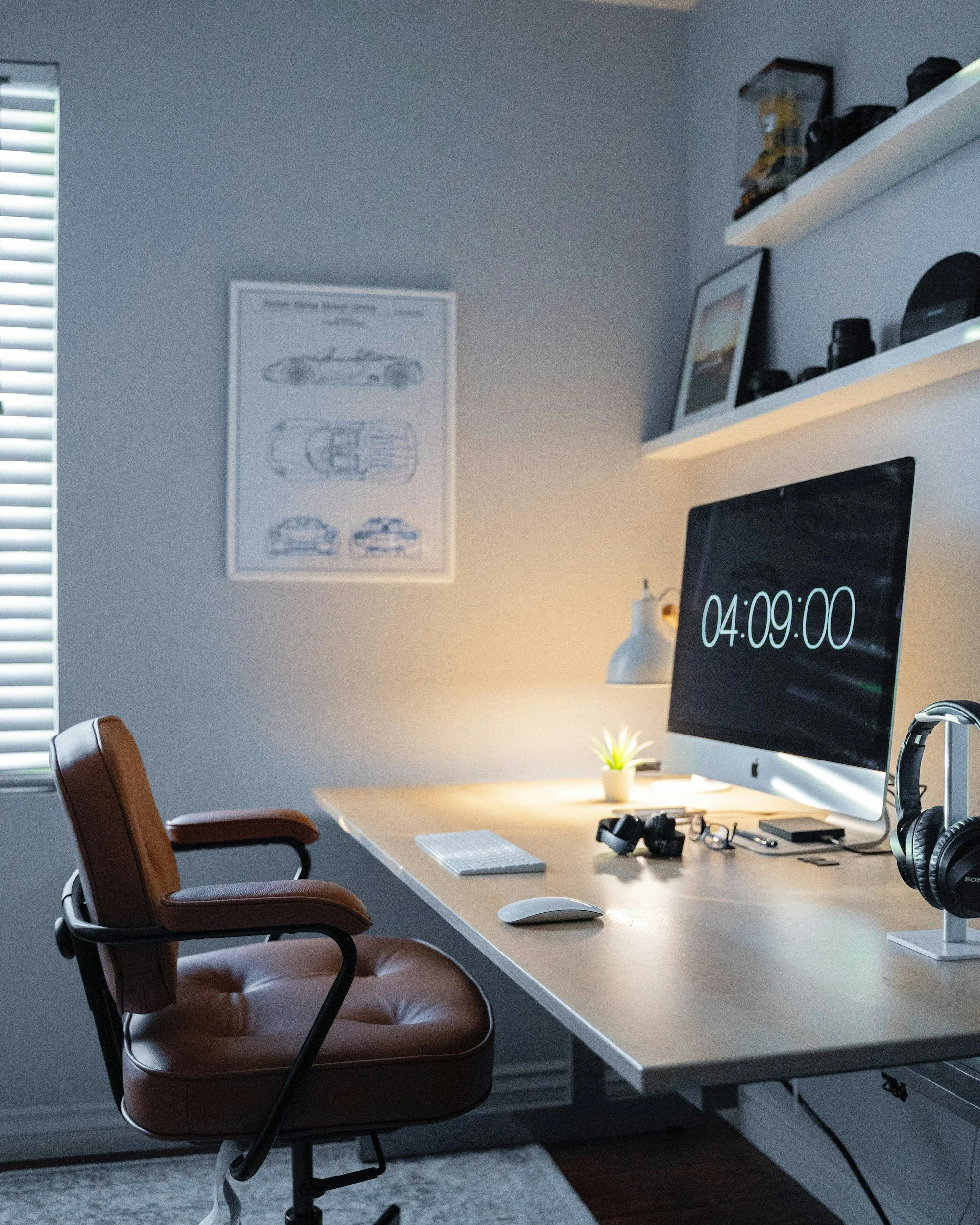If you've ever walked into your kitchen and forgotten why you came in, only to be distracted by an avalanche of unopened mail, tangled cords, and rogue coffee mugs, you already understand what clutter can do to a brain. It’s sneaky. It seeps into your day, hijacks your attention, and slowly erodes your patience. You tell yourself it’s just “stuff,” but it builds up like emotional plaque—and somewhere in that buildup, anxiety begins to thrive.
Clutter Fuels Cognitive Drain You know those days when your mind feels like it’s buffering? A cluttered environment doesn’t just look messy—it saps your mental bandwidth. Psychologists have long warned us that visual chaos competes for our attention. The more objects your eyes scan, the more tasks your brain tries to prioritize, even if unconsciously. You might not realize it, but that pile of laundry on the chair is whispering, “You still haven’t dealt with me.” Clutter sets off a thousand micro-reminders, which gradually wear down your focus, leaving you mentally exhausted before you’ve even started your actual work.
Your Space Reflects—and Affects—Your Mood Mood doesn’t exist in a vacuum; it’s shaped by the environment you’re steeped in. Try feeling grounded while surrounded by the leftovers of yesterday’s chaos. Clutter can silently agitate you, stirring up feelings of guilt, shame, or even helplessness. Maybe you meant to clear out that junk drawer last Sunday. Maybe it’s been 11 Sundays. That mess becomes a low-level stressor—a physical to-do list that never stops glaring at you. A clean space, by contrast, allows your nervous system to soften. You breathe easier. You feel just a little more capable.
The Link Between Clutter and Avoidance There’s also a deeper truth at play: clutter is often the result of emotional procrastination. You’re not just avoiding items—you’re dodging decisions. Should you keep that college hoodie with the coffee stain and nostalgia attached? What about the stack of magazines you swear you’ll read? It’s easier to postpone those choices. Over time, the avoidance accumulates and turns into dread. The longer you delay, the more emotionally loaded those objects become. It’s no longer just clutter—it’s evidence of everything you haven’t dealt with.
Taming the Paper Trail with Digital Tools Stacks of paper are often the most stubborn clutter culprits—tax forms, insurance documents, kid art, old receipts. One of the easiest ways to reclaim control is by converting these to digital files using tools that are both free and fast. Services like Adobe’s online PDF converter let you snap a photo or upload a scan and turn it into a tidy, searchable PDF in seconds—no software download required. Just click here if you're ready to clear out those paper piles without losing the important stuff.
Decision Fatigue Starts at Home We hear about decision fatigue in the context of CEOs and politicians, but it starts in the hallway closet. Every item in your space is a decision that hasn't been made: keep or toss? Fix or forget? Save or donate? The clutter you ignore during the week turns into a psychological minefield by the weekend. And if you already suffer from anxiety, the added burden of so many small, unresolved questions can make you feel like you’re always behind—chasing order but never catching it.
The Toll on Relationships and Daily Living It’s not just an internal struggle. Clutter has a way of leaking into your relationships. If you share your space, one person’s clutter can become another’s resentment. Arguments about cleaning often aren’t about the mess itself—they’re about power, control, or who carries more of the domestic weight. Even solo dwellers feel it. You might avoid inviting people over or feel embarrassed during surprise visits. Clutter shrinks your social life, and over time, it isolates you. It makes your home feel less like a haven and more like a trap.
Hiring Help Isn’t a Failure—It’s a Reclaiming Some people muscle through the chaos themselves. But here’s the truth: you don’t get extra credit for struggling alone. Bringing in a professional organizing service like Let Your Space Bloom can be the smartest move you make for your mental health. They don’t just rearrange your stuff—they help you rewrite your relationship with your space. A good organizer isn’t there to judge your piles of papers or sentimental hoarding. They’re trained to see both the mess and the meaning behind it, gently walking you through decisions you’ve been avoiding for years. And when the dust finally settles, what you’re left with is more than just a clean room—it’s a sense of clarity.
Clean Space, Clearer Identity Your home is often the first mirror you look into every morning. What it reflects matters. When your space aligns with how you want to feel—calm, capable, intentional—it reinforces that self-image. You start your day without the weight of yesterday’s clutter, and that shift can be radical. It’s easier to take risks, to reach out, to rest deeply. Your physical space becomes an extension of your emotional stability. And in a world that’s already overloaded with noise, cultivating that kind of internal and external alignment is nothing short of a quiet revolution.
There’s a tendency to internalize anxiety as a purely psychological issue—to treat it like a software glitch that needs therapy or medication to fix. But sometimes the glitch isn’t internal. Sometimes, it’s your environment. The piles, the clutter, the deferred decisions—they’re all players in your daily emotional experience. Shifting your space might not solve everything, but it can lower the background noise dramatically. And that silence? It’s where peace begins.
Transform your home into a haven of efficiency and elegance with Let Your Space Bloom. Discover expert organizing tips and services that free up your time for what truly matters!








